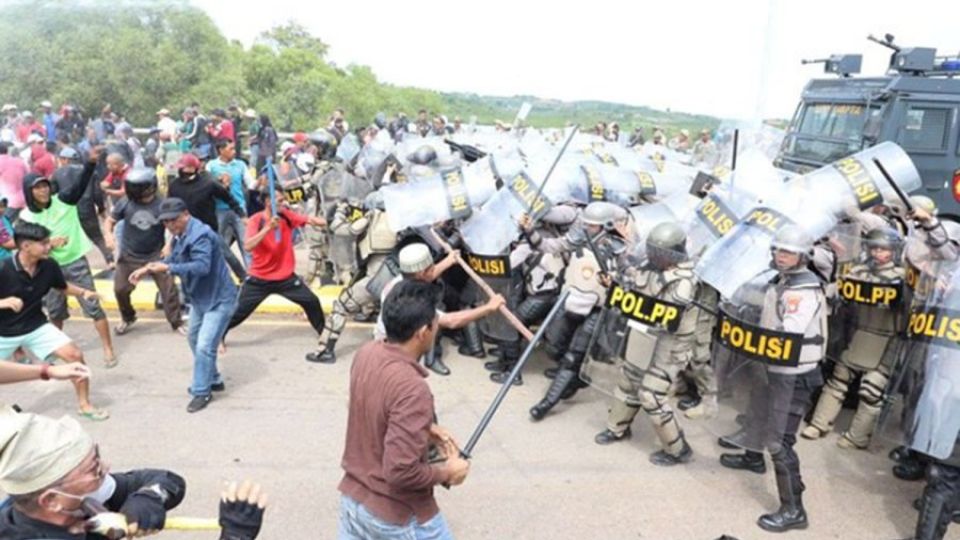September 15, 2023
JAKARTA – President Joko “Jokowi” Widodo may receive criticism for his simplification the cause of clashes between the native inhabitants of Rempang island, situated just a few kilometers from Singapore, and security personnel of the Batam Free Port Agency (BP Batam), as poor communication. To conclude that the clashes would not have occurred had the agency and the people communicated is naive.
The root cause of the unrest is more profound and complicated than what those in Jakarta think. It is not about compensation either, as the inhabitants have been living on the island for generations, even before Indonesia’s independence, but have no formal documents to prove their ownership of the land, which has been dramatically affected by the construction of an integrated glass industrial center in Rempang Eco-City. They have been treated as squatters rather than citizens.
The unrest in Rempang gives us even more proof that the militaristic mentality has been well maintained from the planning to the execution of national projects that are classified as strategic. The oppressive way the security personnel, including the police, the military and the Public Order Agency (Satpol PP), quelled the demonstrators reminded us of the typical use of violence to silence critics and opposition to government policies during Soeharto’s 32-year dictatorship. We, like many other people, only wonder why the security personnel were so cruel to the unarmed people, who came to articulate their rights.
The government was quick to expel 7,500 native people from the island and resettle them on the nearby Galang Island, despite their objections. They opposed the relocation as they only occupied about 10 percent of the 17,000-hectare island.
The Rempang Eco-City project was a result of a bilateral summit between President Jokowi and Chinese President Xi Jinping in July, during which several Chinese companies committed to investing in Indonesia, including Xinyi Group, to develop the glass industrial center. The Xinyi Group is one of the world’s largest glass and solar panel manufacturing companies.
The investment is estimated at US$11.5 billion and will create 35,000 jobs. Its local partner is PT Makmur Elok Graha (MEG), a subsidiary of Artha Graha Group, which is owned by well-known conglomerate Tommy Winata.
The Batam municipality covers Batam, Rempang, Galang (Barelang) and some small islands, and belongs to Riau Islands province. Batam is described as an urban and industrial zone, while Rempang and Galang have a solid rural character and low-density population.
The President’s decision to appoint Investment Minister Bahlil Lahadalia as his envoy to handle the protest may not work as he is one of the outspoken promoters of Chinese investment, and therefore will be unable to win the local people’s trust. His involvement in the problem-solving efforts will only worsen the situation.
First and foremost, the President must get first-hand information on the ground and refrain from dependence on his aides and businesspeople who will justify any means to increase profits, including removing people from their homes.
The protesters will be happy to talk to the government on mutual goodwill. As the mayor of Surakarta and governor of Jakarta, Jokowi succeeded in persuading people to accept resettlement thanks to his propensity to a humane approach that includes dialogue.
The President should also make sure no more violence occurs through a clear order to the security apparatus. As we have seen, violence will only breed violence.
Jokowi knows that listening to people’s grudges and accommodating their aspirations are key to any negotiation. The same recipe should work in Rempang and other national strategic projects. Use of force will not.


